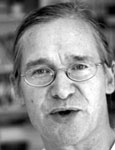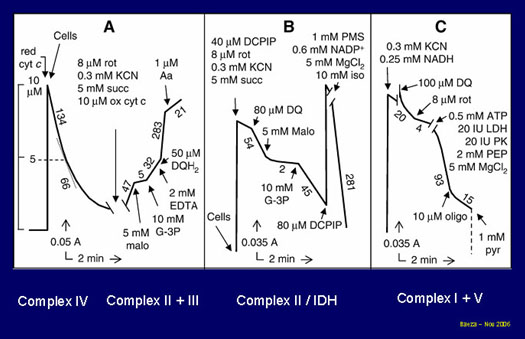Pierre Rustin

Contact
Pierre.Rustin @ rdebre.inserm.frWebsite
http://www.u676.orgBiography
Born: February 18, 1953. Education: 1975-1976: Vice-President Université Pierre et Marie Curie - Paris. 1977-1980: PhD Student Laboratoire de Biologie Végétale IV, Dir. Professeur Lance, Université Pierre et Marie Curie, Paris. 1981: Permanent research position at the CNRS (UA C.N.R.S. 1180; Plant Physiology section). 1983-1987: Vice-President Conseil Scientifique de l'Institut de Biologie Végétale - Université Pierre et Marie Curie -- Paris. 1987-1988: Post-Doctoral position, Department of Biochemistry, University of California, CA 92521; Support: National Science Foundation Grant DMB 85-15181 and CNAM/CAB/NATO fellowship. Positions and affiliations: 1989-2004: Permanent position : Unité de Recherches sur les Handicaps Génétiques de l'Enfant, INSERM U393 (Dir. A. Munnich). Research Group co-leader: Biochimie et Biologie Moléculaire des Pathologies Mitochondriales de l'Enfant). Hôpital des Enfants-Malades, France. Since 2004 :Research group leader: Physiopathology and therapy of mitochondrial diseases, INSERM U676 Hôpital Robert Debré, France. Honors and awards: Académie des sciences/Alexandre Joannides (France) 2001; Excellence in Scientific Research, René DESCARTES (Europe) 2004.Research Summary
Dr. Pierre Rustin is interested in the understanding and the curing of mitochondrial diseases, in particular those linked to respiratory chain deficiency. Respiratory chain defects can lead to superoxide overproduction and cardiomyopathy as in diseases linked to complex I deficiency and Friedreich ataxia. The specific know-how of the group is our ability through biochemical approaches (spectrophotometry and polarography) to detect mild defects of the respiratory chain and Krebs cycle. As it has been shown that oxidative stress is widely involved in cardiovascular disease, we also focus our attention on the pathways regulating the response to oxidative stress insult. We study different models ranging from patients fibroblasts to mouse models with the objective to propose therapies.
Three spectrophotometric assays for the measurement of the five respiratory chain complexes in minuscule biological samples.
Publications
- Joza N, Oudit GY, Brown D, Benit P, Kassiri Z, Vahsen N, Benoit L, Patel MM, Nowikovsky K, Vassault A, Backx PH, Wada T, Kroemer G, Rustin P, Penninger JM. , Muscle-specific loss of apoptosis-inducing factor leads to mitochondrial dysfunction, skeletal muscle atrophy, and dilated cardiomyopathy. Mol Cell Biol. Dec;25(23):10261-72. 2005
- Rustin P, Bonnet D, Rötig A, Munnich A, Sidi D. Idebenone restores mitochondrial respatory chain enzyme activities in the cardiac muscle in Friedreich's ataxia. Neurology 62:524-5. 2004
- Seznec H, Simon D, Monassier L, Criqui-Filipe P, Gansmuller A, Rustin P, Koenig M, Puccio H. Idebenone delays the onset of cardiac functional alteration without correction of Fe-S enzymes deficit in a mouse model for Friedreich ataxia. Hum Mol Genet 15, 1017-1025. 2004
- Bénit P., Beugnot R., Chretien D., Giurgea I., de Lonlay-Debeney P., Issartel J.P., Corral-Debrinski C., Kerscher S., Rustin P., Rötig A., Munnich A. Mutant NDUFV2 subunit of mitochondrial complex I causes early onset hypertrophic cardiomyopathy and encephalopathy. Hum Mutation 21:582-6. 2003
- Wang JM, Wilhelmsson H., Graff C., Li H., Oldfors A., Rustin P., Bruning J., Kahn C.R., Clayton DA., Barsh GS., Thoren P., Larsson NG Dilated cardiomyopathy and atrioventricular conduction blocks induced by heart-specific inactivation of mitochondrial DNA gene expression. Nature Genet 21: 99-102. 1999